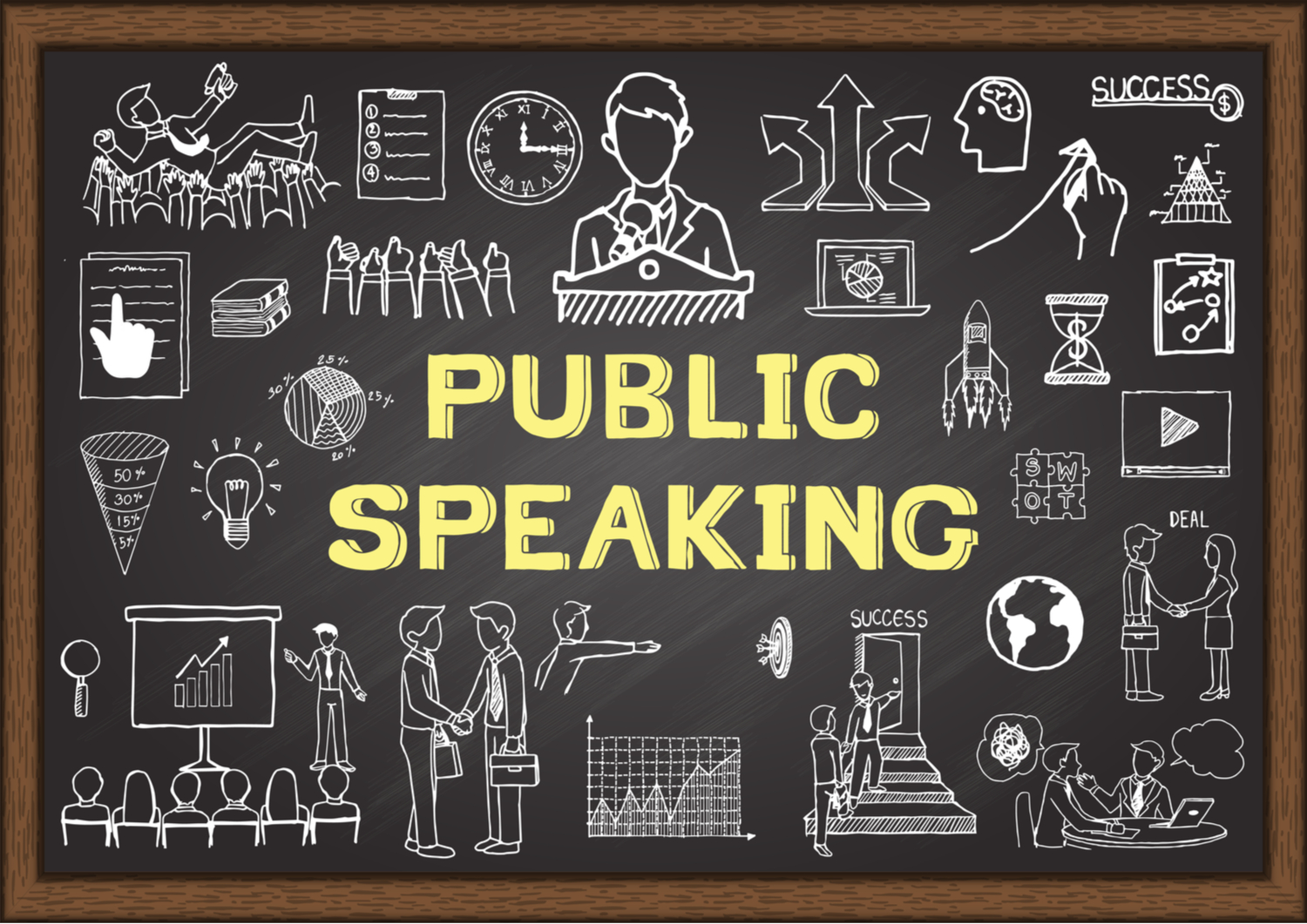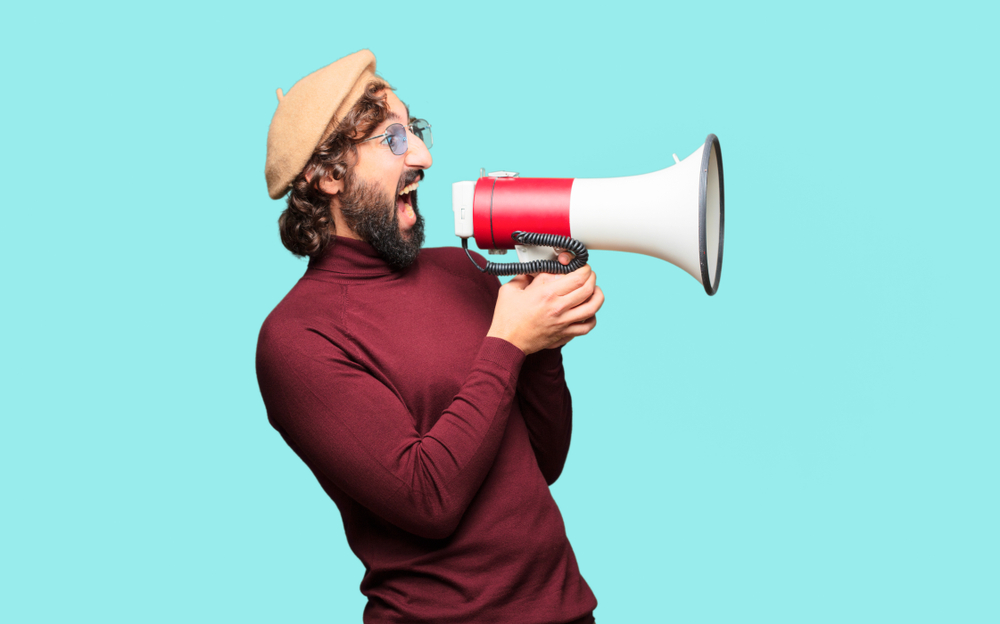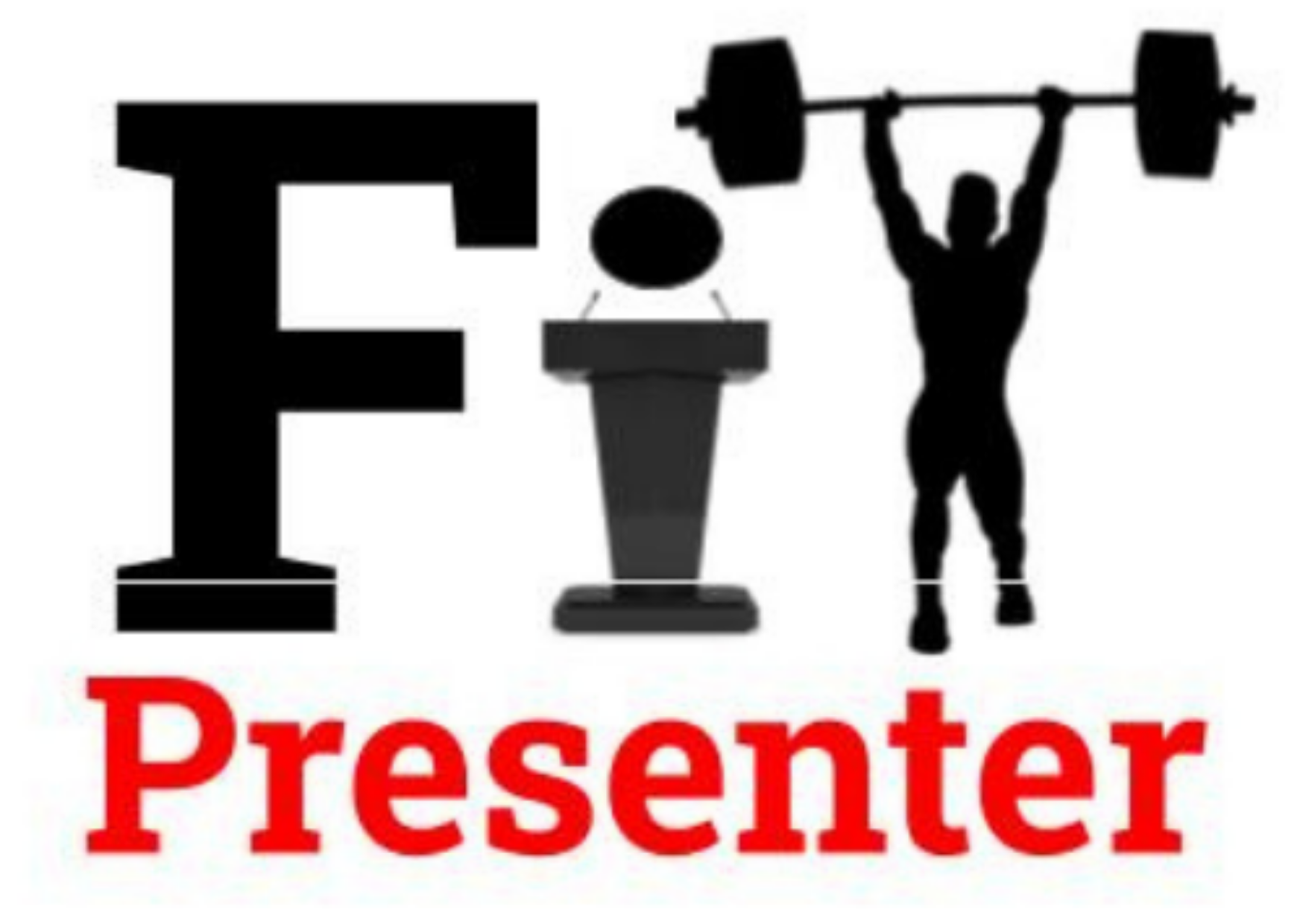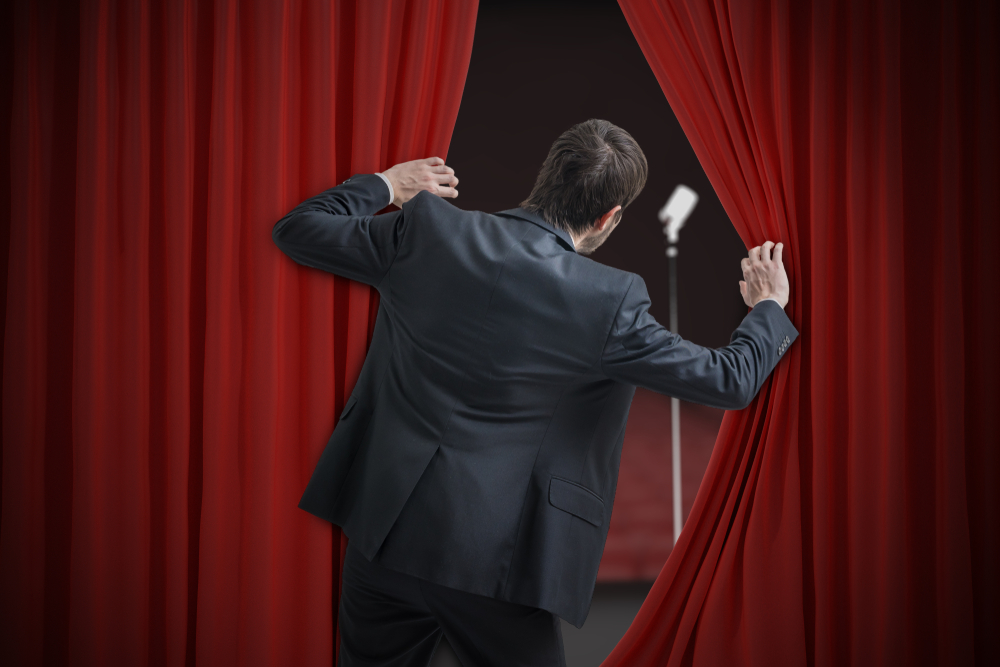The local newspaper came to our Toastmasters club’s open house once and gave us a nice write-up. The opening line read, “Studies show that many people fear public speaking more than death.” That is the biggest exaggeration in the history of the English language! I’ve never seen such a study, but stage fright is very real. If you search online for speaking tips, the top results deal with anxiety. Why is that? Should nervousness define your experience as a speaker?
Why so negative?
I have never seen a cover of Runner’s World that said, “How to deal with fatigue” or Flex magazine asking, “What do you do when the weight is heavy?” In what other venture do we advertise the downside first? Commercials on television for medications with one benefit and 12 side effects manage to accentuate the positive and hide the negative. What about public speaking? In a craft where optimism is your sharpest tool, people so often begin by describing the worst of it.
This one sentence will cure your speaking bug
Being nervous is the best part of public speaking. Savor it! Most people live without ever having a reason to be nervous about anything. Why would you deprive yourself of that thrill? The presence of an audience, your powerful message, and the high stakes for getting it right should motivate you, not deter you. Your anxiety builds energy in the crowd, generates their sympathy, and increases your appreciation for your audience as they lend their support.
If you are confident in your message, then you should be confident in your ability to share the message. No matter what your emotions are in the moments before you begin speaking, your confidence in your message will keep you on point.
Embrace your anxiety
There’s something special about beginning a speech when you’re too nervous to remember your lines. If you rehearse to the point that you commit every word to memory, your nerves will put your mouth on autopilot. You speak straight from the subconscious mind, and you’ll feel like you’re watching yourself speak. It’s pretty cool.
A nervous speaker generates sympathy from the audience. When they feel like they’re propping you up, they connect to you better than they would if you appear too sure of yourself. When you rely on the audience to build your confidence, you appreciate them more and your sincerity shows. An arrogant speaker will talk down to an audience. They recognize it much more quickly than they see your stage jitters.

We're still standing
The best example that I have seen of this audience support is the 2018 World Championship of Public Speaking. The winner that year was Ramona Smith, a middle school teacher from Cleveland, Ohio. Although Ramona radiates confidence on stage, she presented a story of several failures in her life and likened the experience to being a professional fighter being knocked to the canvas. Her experience in the classroom no doubt fueled her ability to stand tall on stage and yet get down to eye level with her audience.
In most stories about overcoming obstacles, the speaker will usually lean on a guru to give the advice that saves the day. Ramona used the audience as her inspiration, feeding off of their anxiety to physically lift her off of the floor. It reminded me of the way Hulk Hogan would make his big comeback against a string of 1980’s title challengers. When she got back to her feet, the audience began singing to her in unison, even though she never expected it. She had to present herself as vulnerable in order for that audience to buy into that struggle. An overconfident speaker would have never gotten that kind of reaction.
I'm not nervous, but my character is
If your nervousness overtakes your ability to speak, then include it in your performance. The second place speaker in 2018 was Sherrie Su, who used her anxiety as part of her speech. She begins with her back turned to the audience and talks about life being like the stage, saying, “but sometimes it’s scary.” The quiver in her voice sold the idea. No amount of acting can replace the genuine trepidation of public speaking. She turns around, faces the audience and says, “I’m a little scared right now.” Sherrie had only spoken English for eight years at the time, which added to the tension. She talked about overcoming anxiety in her life by turning around facing fear. The topic can sound cliche, unless the speaker reinvents it. Sherrie added sophistication by eliciting empathy from the audience to lift her up.
If you are so nervous that the audience can see it, then use that tension in your speech. Begin with a story about someone who is nervous, or when you are nervous. As your confidence grows, the character’s good fortune improves.
Nervousness is pardonable, not excusable
Just note, it’s one thing to be nervous, tell people that you’re nervous, and then overcome it as you speak. It’s another issue to completely cop out and say that you’re too nervous to speak. When I was in high school, the guest speaker at a wrestling awards banquet opened his remarks with, “Guys, um, I’m not a very good public speaker.” He’s a big shot in the sport to this day but I’ve never been a fan, thanks to the 20 minutes he stole from my life.

Tie a yellow sweater 'round that pencil neck
Much like the fitness industry, the speaking profession is loaded with bad advice. I am looking right now at a list of public speaking tips online, and tip number one is … brace yourself … “breathe.” Below that stellar list is advice from a Harvard speech professor. Are you ready? “Nervousness is normal.” Well golly gee willikers, how did I miss that? This is what a $20 billion worth of research grants has come up with? This explains why the University of Alaska Anchorage, my almost alma mater, kicks their asses in the national debate competition every year.
Toastmasters does not put speaking tips in a list, as they know that public speaking is not so simple. Nervousness, however, is very simple. We like it. It’s the best thing about public speaking. Embrace anxiety, and use it to your advantage on stage.


0 comments